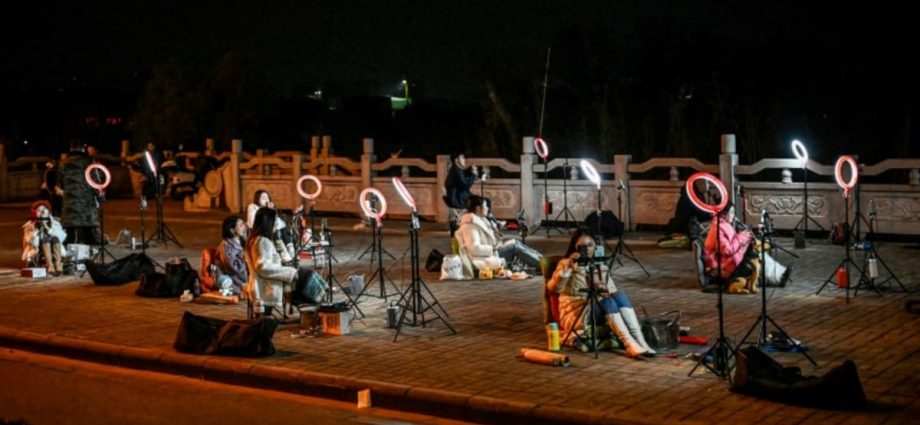
For eyebrow tattooist Zhang Xiaoxiao, the broadcasts are an extra source of income.
She said the COVID-19 pandemic had hit her profession hard, with beauty salons crippled by health restrictions.
“Pressure was very high and business was bleak … If not for this, I don’t think I would be livestreaming,” explained Zhang, 36, as she set up to work until 3am.
“I really enjoy singing and dancing, so I thought I would make it a side job, to be able to do something I liked.”
Last October, Douyin issued a warning against public disturbances caused by outdoor livestreaming, though that has largely gone unheeded after an initial crackdown.
Zhang said sometimes people walking past react angrily to her.
“Some look at us with some discrimination. They ask ‘Why don’t you find a normal job?'” she said.
“So we choose a place far away from the residents, to try to not disturb people, and where it’s very safe.”
The streamers’ agencies send men who act as assistants and bodyguards – with some telling AFP they occasionally had to move drunk people on or block inappropriate online viewers.
Despite the risks, big donations keep livestreamers like Qiao coming back.
“One guy scrolled past my roadside livestream one night at 2.20am and felt very touched,” Qiao said.
The anonymous man gave her a 3,000 yuan (US$435) donation.
“I was so happy that I went home early that night,” Qiao said.
“Livestreaming is actually very simple, it’s like making friends.”

